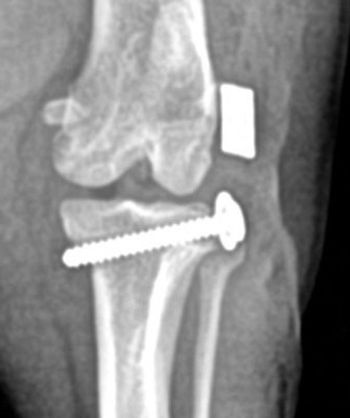
Keeping pets safe for the holidays
One veterinarian offers tips to help your clients keep their pets safe this holiday season
With the holiday season quickly approaching, your clients are preparing to celebrate the holiday with their loved ones, including their pets. As everyone breaks out the holiday decorations and gets their trees, safety challenges for pets come into the home that some pet parents might not even know about.
To help veterinary professionals prepare clients for health risks, Audrey Wystrach, DVM, chief executive officer at Petfolk, shared some tips and warnings you can issue to your clients to keep pets home for the holidays and out of the emergency room in an email to dvm360®.
Deck the halls
When it comes to decorations for the holidays, although pretty and festive, your clients should be aware of the dangers it poses to their pets. When it comes to tinsel and garland, cats will be sure to take an interest. According to Wystrach, cats will then play with the string décor that can end up wound up under the tongue or wrapped around their stomach.
For houses that welcome fresh garlands, such as mistletoe and holly, these decorations can cause upset stomach, abdominal pain, and excessive drooling if ingested. Wystrach also warned that if ingested in a large quantity, pets could experience a drop in blood pressure, hallucination, and seizures.
"There are many plants toxic to pets. Here are 5 of the most common: Poinsettias, Holly, Mistletoe, Pine, and Amaryllis. Gastrointestinal upset and vomiting are the most common side effects. Escalated concerns around amaryllis and mistletoe come with more severe side effects that include changes in blood pressure, tremors, or even seizures," explained Wystrach, in the email.
Menorahs and other open flames are a risk for pets to either knock over causing a fire or a pet burning themselves. Along with open flames, Christmas lights are extremely dangerous for pets. If chewed on, Wystrach warns Christmas lights and electrical cords can cause electrocution that could lead to death. Batteries are also a risk to pets, containing corrosives that can cause ulcerations in the mouth, tongue, and intestines.
As families unwrap presents, the bows, paper, strings, and tape on the decorated gifts can be a choking hazard to pets. Wystrach warns pet parents to keep all these items out of reach for pets and to not leave any of these materials unattended because pets are naturally drawn to crinkly paper and enjoy chewing on twine and ribbon.
Oh, Christmas tree
A staple of the holiday season is the Christmas tree. Whether families go for a real tree or a fake, both pose risks to pets. For example, glass or plastic ornaments appear as a hanging toys to pets, but can cause ingested can cause choking, obstruction of airways, and toxins. Broken ornaments can then cause lacerations and other traumas. If you are in a dog-only household, keeping them out of reach can help prevent these issues, but not really for felines since they can climb the tree.
If your clients get a real tree, be sure to keep advising them to not let their pet drink out of the bottom of the tree. Preservatives, pesticides, and other agents added to keep the tree fresh can be a toxin risk. When it comes to fake trees, the plastic and possible small fragments of metal can cause intestinal blockage or gastrointestinal issues, according to Wystrach.
Newsletter
From exam room tips to practice management insights, get trusted veterinary news delivered straight to your inbox—subscribe to dvm360.






